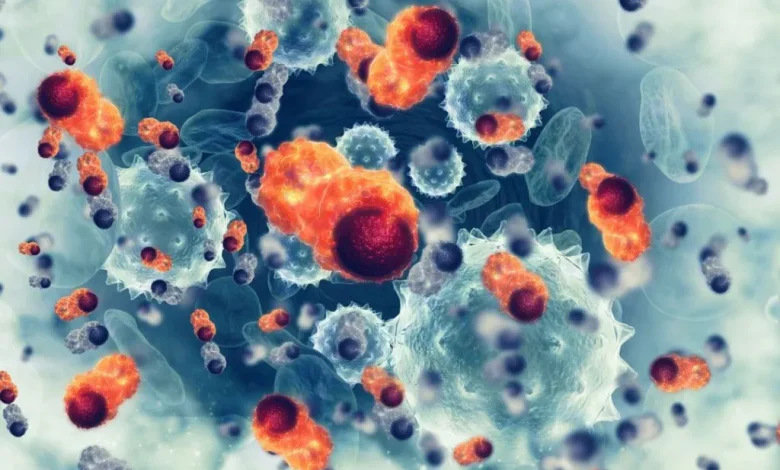What is a Cancer

Cancer is a class of illnesses characterized by the unchecked growth and spread of abnormal cells in the body. It is usually categorized according to the type of cell or organ in which it arises, such as leukemia, lung cancer, or breast cancer, and it can occur in nearly any portion of the body. Through a process known as metastasis, the aberrant cells may develop into tumors, infiltrate neighboring tissues, or travel throughout the body via the lymphatic or circulatory systems.
The type and stage of cancer determine the symptoms, and immunotherapy, chemotherapy, radiation, and surgery are among the available treatments.
1. Types of cancer
Almost any region of the body can acquire cancer, and the various forms are called after the organs or tissues in which they first appear. While lung cancer frequently results from smoking and affects the lungs, breast cancer affects the cells of the breast.
In men, colorectal cancer starts in the colon or rectum, while prostate cancer is unique to the prostate gland. White blood cells are impacted by the blood and bone marrow cancer leukemia, while the lymphatic system is the target of lymphoma.
Other types include pancreatic cancer, skin cancer (like melanoma), cervical cancer, ovarian cancer, and liver cancer, each presenting unique challenges in diagnosis and treatment. Although symptoms vary, early detection and treatment are crucial for managing many of these cancers.

2. What are the symptoms of cancer?
Depending on the type and location of the cancer, the symptoms might vary, but some typical ones include chronic fatigue, unexplained weight loss, and discomfort in certain places, including the head, abdomen, or joints.
Another warning indication may be the development of lumps or swelling, especially in the breast, lymph nodes, or testicles. Additional symptoms could include chronic coughing, hoarseness, or trouble swallowing, as well as skin abnormalities like new moles or non-healing wounds. Shortness of breath, unexplained bleeding, and changes in bladder or bowel habits can also be signs of cancer.
Since early detection is essential for better results, it’s crucial to see a doctor if any of these symptoms worsen or continue.
3. How is cancer treated?
Cancerous tumors :
- that have not spread can be removed surgically.
Chemotherapy:
- Uses potent medications administered intravenously (with a needle into a vein) or as pills to kill cancer cells.
High radiation dosages
- are used in radiation treatment to kill cancer cells.
Immunotherapy:
- Uses your body’s defenses against illness.
Targeted therapy :
- focuses on the genetic alterations, or mutations, that cause healthy cells to develop into cancerous ones.
Hormone therapy:
- Prevents the hormones that cause cancer. For instance, individuals with prostate cancer who were designated male at birth may be given medicines that reduce testosterone, which can exacerbate the disease.
Through a bone marrow
- transplant, healthy blood stem cells are substituted for damaged ones.
4. Can cancer be prevented?
A healthy lifestyle can greatly lower the risk of cancer, even though it cannot be totally avoided. The risk of several cancers can be reduced by abstaining from tobacco, keeping a healthy weight and diet, exercising frequently, avoiding excessive sun exposure, and consuming alcohol in moderation. Other important components of prevention include routine tests for early detection and vaccinations, like the HPV vaccine. However, the development of cancer may still be influenced by genetic factors and other uncontrollable hazards.
Conclusion:
To sum up, cancer is a collection of illnesses marked by the unchecked proliferation of aberrant cells that have the potential to spread to other bodily areas. Its symptoms, risk factors, and therapies vary greatly, and it can affect almost any organ or tissue. Changes in lifestyle, early identification, and treatment advancements have significantly improved outcomes and survival rates, even though cancer cannot always be prevented. Cancer care keeps improving as a result of increased knowledge and research, giving patients hope and raising the likelihood of a successful course of treatment and recovery.
FAQs:
1. Is cancer genetic?
Certain cancers are in fact inherited, which means that inherited genetic alterations can cause them to be handed down through families. Certain cancers are more likely to occur as a result of these alterations. For instance, there is a clear correlation between a higher risk of ovarian and breast cancers and mutations in the BRCA1 and BRCA2 genes. Lynch syndrome can also raise the risk of endometrial and colorectal malignancies.
2. Can cancer come back after treatment ?
Recurrence is the term for the possibility that cancer will return following therapy. This occurs when cancer cells start to proliferate again after the previous treatment did not totally eradicate them. Recurrences of cancer may occur in the same region, adjacent lymph nodes, or other body areas. Frequent follow-up care is necessary to watch for recurrence symptoms, and if cancer recurs, additional therapies might be suggested.
3. How long will treatment take?
Depending on the particular ailment and the treatment approach, the length of treatment varies. While some illnesses may require long-term management, others may just require short-term treatment. The time of treatment can be affected by a number of factors, including the severity of the ailment, each patient’s response to treatment, and the intricacy of the treatment plan. It’s crucial to speak with a medical expert to receive a customized treatment timeframe estimate.



